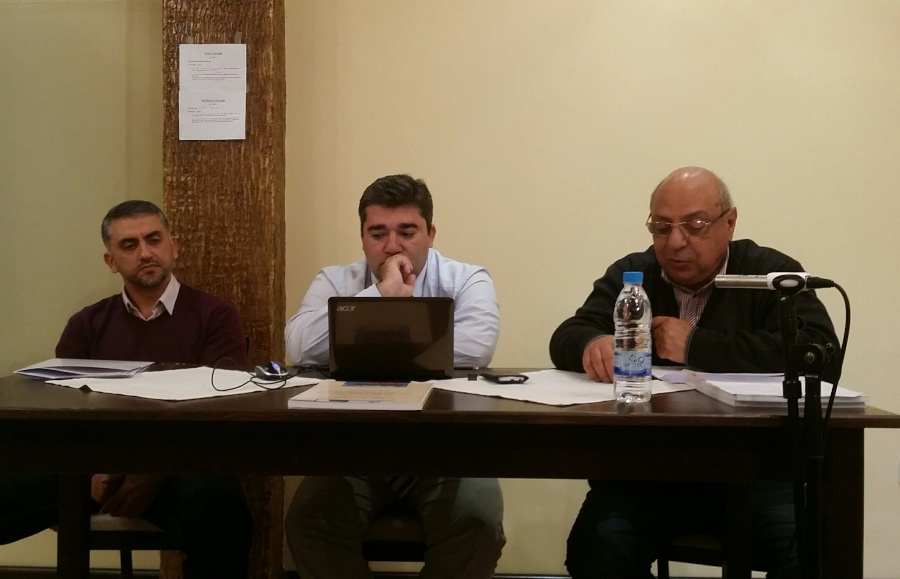News

Multi-religious society of Medina – a historical symbol of interfaith dialogue
16 October 2014“There are several texts in the Qur’an that are historically identified with the multi-religious society in Medina and textually – with the interfaith relations”, said Dr. Arif Abdullah, Head of the Scientific Research Center at the High Islamic Institute during a scientific conference organized by the National Council of the Religious Communities in Bulgaria (NCRCB).
NCRCB traditionally is a host of such events. This year the conference was held under the motto “Values, paradigms and challenges in interfaith relations” between 10th and 12th of October in Bansko. In the scientific forum, opened by Dr. Rupen Krikoryan, Chairman of NCRCB, and Emil Velinov, Director of “Denominations” Directorate at the Council of Ministers, participate with reports academics representing the six traditional religious denominations in the country. The conference was also attended by high clerics of the relevant religions.
The Muslim denomination was presented by Dr. Arif Abdullah, who defended his doctoral thesis in the University of Aberdeen in the UK. His academic interest is in classical and modern trends and approaches in Qur’anic hermeneutics, theory of hadithology, problems of the religious pluralism.
In his report on the topic “Main objectives of inter-faith relations: Islamic perspective”, he analyzed both the classical exegetical conclusions related to the texts which concern the inter-faith relations, and the modern works on the subject. The analysis outlined the methodological difficulties and problems in the extraction of a definite paradigm of inter-faith relations from the Qur’an. Dr. Abdullah also stressed on the impact of the socio-political context on the cognitive system and the exegesis of the interpreter.
The scientific conference ended with a declaration the motto of which is “Let’s build together a society of values”.
We, the participants in the Fourth annual conference of the National Council of the Religious Communities in Bulgaria, want to build together a society of values and prosperity, of faith, honesty and justice. We want to build a society we all to be proud of which, and which to bequeath to the future generations with dignity and joy, is stated in the declaration.
The religious leaders also say that they realize that the true welfare can be build and achieved with joint constructive efforts only based on religious values and it is a consequence of the harmony in one society.
They appeal to the religious communities, the state institutions, political parties, civic organizations, and especially to the young people in Bulgaria, together in their diversity to oppose and overcome the hatred and destructive trends. To be closer and closer to people and to compete in the good.